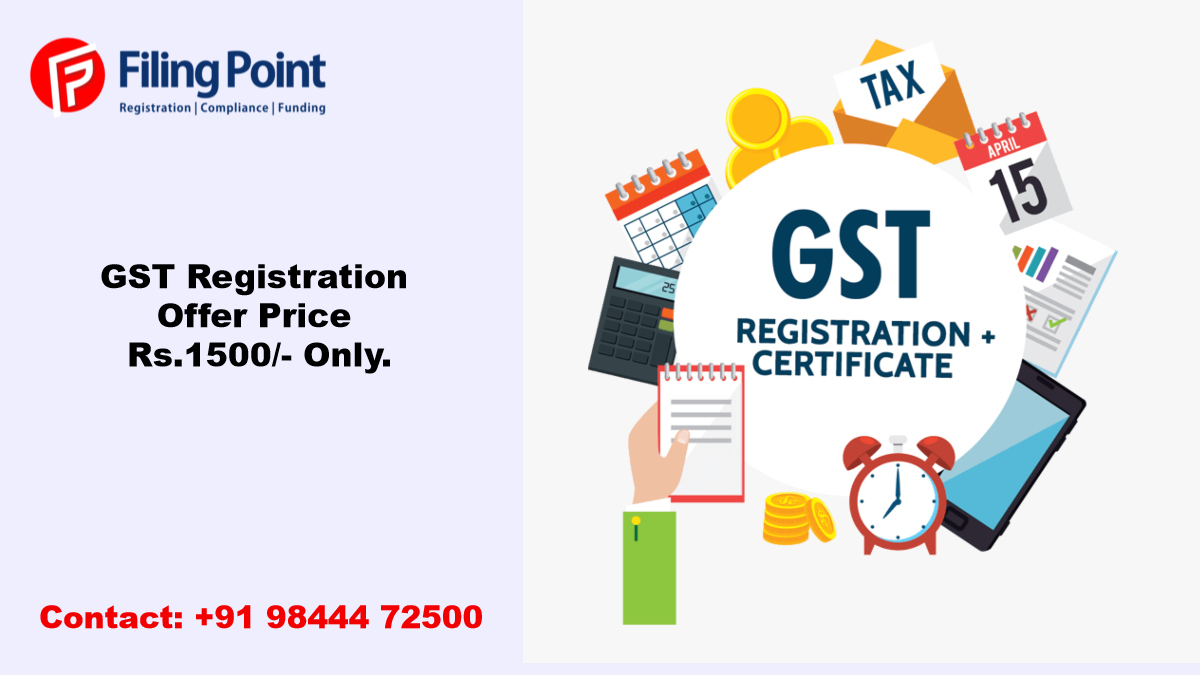Budget-friendly Choices for the very best GST Registration Services in Singapore
Wiki Article
From Start to Complete: The Ultimate Roadmap to GST Enrollment for Services Looking For Financial Stability
Navigating the intricacies of Item and Solutions Tax Obligation (GST) registration is an essential action for businesses striving for monetary security. From understanding the essential concepts of GST to adhering to post-registration guidelines, the procedure can appear daunting initially glimpse. Breaking down the roadmap into manageable steps can improve the registration journey for companies looking to improve their economic standing. Allow's discover the vital parts that make up this supreme roadmap and find how each stage adds to laying a strong foundation for monetary success.Comprehending GST Basics
Delving right into the basic concepts of Product and Solutions Tax (GST) is vital for obtaining an extensive understanding of its effects on services and the economic climate. GST is a value-added tax obligation imposed on many items and solutions for domestic usage. It has changed numerous indirect taxes that existed in the pre-GST era, improving the tax framework and boosting simplicity of doing company in India. Under the GST system, both services and items are tired at a particular rate, which is established based upon their classification. Businesses are called for to sign up for GST if their annual turn over surpasses the threshold limitation set by the federal government. Input Tax Credit Rating (ITC) is a considerable feature of GST, allowing organizations to declare credit score for taxes paid on inputs, decreasing the total tax obligation problem. Recognizing the fundamentals of GST is critical for businesses to follow tax obligation policies, manage their funds successfully, and add to the nation's economic growth by taking part in a transparent tax obligation system.Qualification Standards for Enrollment
To register for GST, businesses need to fulfill details eligibility standards established by the government. The main qualification demand is that any service entailed in the supply of items or services with an annual aggregate turnover above the threshold restriction set by the authorities must register for GST. Since the current regulations, the threshold limit for GST enrollment is a yearly aggregate turn over of 40 lakhs for businesses running within a state, with the exception of unique classification states where the restriction is 20 lakhs. Furthermore, particular services are called for to register for GST regardless of their turnover, such as interstate suppliers, informal taxed individuals, and services accountable to pay tax under the reverse cost device. It is vital for services to thoroughly analyze their turnover and purchase types to establish their GST registration obligations precisely. Failure to sign up for GST when eligible can lead to fines and legal effects, making it necessary for companies to follow the specified qualification requirements.Files Needed for Enrollment
Having actually met the qualification requirements for GST enrollment, services should currently guarantee they have the requisite documents in location to continue with the registration procedure effectively. The records required for GST enrollment commonly include evidence of company constitution, such as collaboration action, registration certification, or unification certificate for different kinds of services. Furthermore, companies need to supply files developing the primary location of service, such as a rental arrangement or electrical energy bill.Step-by-Step Enrollment Refine
Beginning the GST enrollment process includes a collection of structured actions to ensure a compliant and smooth enrollment for companies. The initial step is to go to the GST website and fill in the enrollment form with precise information of business entity. Following this, the applicant gets a Temporary Recommendation Number (TRN) which is made use blog of to return to the application process if it's not completed in one go.Following, all required files based on the checklist given by the GST portal need to be submitted. These papers typically include proof of business address, identification and enrollment evidence of marketers, economic declarations, and service entity's frying pan card.

Post-Registration Conformity Standards

Verdict
To conclude, services seeking monetary stability should understand the essentials of GST, fulfill qualification criteria, gather essential papers, adhere to the step-by-step enrollment procedure, and follow post-registration standards - Best GST registration services in Singapore. By sticking to these steps, businesses can ensure conformity with tax regulations and keep monetary stability in the lengthy runFurthermore, certain organizations are needed to register for GST regardless of their turnover, such as interstate suppliers, informal taxable individuals, and businesses reference responsible to pay tax under the reverse cost system.Having actually satisfied the eligibility standards for GST enrollment, businesses have to now guarantee they have the requisite papers in place to continue with the registration procedure efficiently. The records needed for GST registration typically include evidence of company constitution, such as collaboration deed, enrollment certificate, or unification certificate for various types of services. In addition, companies require to supply documents developing the principal location of organization, such as a rental contract or electrical power expense.Starting the GST registration procedure involves a series of organized steps to guarantee a smooth and compliant enrollment for services.
Report this wiki page